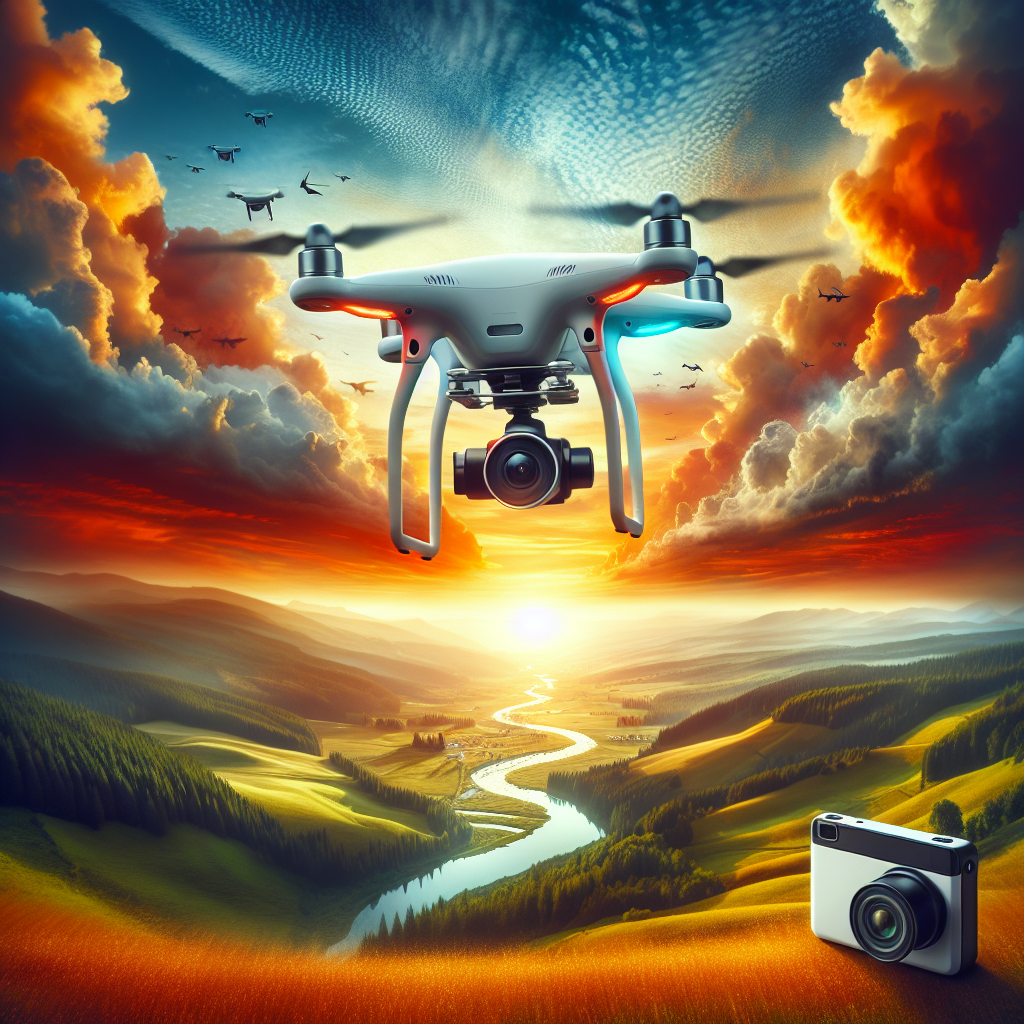Photography has transformed in recent years with technological advancements, and one particular development that has revolutionized the craft is drone technology. As drone technology continues to advance, so does the potential to capture truly breathtaking images from a whole new perspective. This article aims to assist in mastering the art of drone photography.
Understanding Your Equipment
Just like a painter would familiarize himself with brushes and colors, a drone photographer needs to understand their equipment. Knowing how your drone works and its unique capabilities will dramatically improve the quality of the photographs you capture. Most drones come with an integral camera, but some allow for attachment of specialized cameras.
Mastering Flight
Before using a drone for photography, one of the essential skills to master is to control the drone smoothly. It involves understanding how various conditions like wind speed and direction, sunlight, and battery life affect the flight. Practicing the takeoff, flight, and landing should be a regular part of your learning process.
Understanding Appropriate Camera Settings
The quality of drone photography is significantly dependent on the camera settings. It is vital to understand and adjust settings like the exposure, white balance, and ISO, custom-based on the kind of photo you intend to shoot. Learning how to adjust these settings in various lights and backgrounds can bring the difference between a mediocre and a stunning photograph.
Planning the Shoot
Planning is a crucial aspect of drone photography. Research and understand the shoot location, weather conditions, and the time of the day that would offer the best lighting. Use tools like Google Earth to familiarize yourself with the site’s geography. Having a clear plan can significantly ensure a successful shoot.
Framing the Shot
The perspective that a drone offers is unique and can create awe-inspiring photos. However, understanding how to frame the shots is vital for compelling photography. Practice different techniques, play with various angles and perspectives, and find out what works best for each situation.
Post-Processing
Just like any other form of photography, drone photography also requires post-processing to enhance the final image’s quality. Edit the images to adjust the light, color, and sharpness and remove any unwanted elements. Software like Adobe Lightroom and Photoshop can help you enhance your photos effectively.
Respecting Guidelines and Etiquettes
Being respectful towards private property, not infringing on others’ privacy, and always adhering to the local guidelines and regulations regarding drone use is essential. Some areas might require special permissions, or drones might be prohibited altogether. Always respect the rules to avoid legal complications.
Conclusion
Drone photography opens up a world of possibilities and enables photographers to capture truly remarkable images. But, like any other form of art, it requires practice, understanding, and a great deal of patience. So equip yourself with the right knowledge, respect the law, understand your equipment well, and you’ll be well on your way to mastering the art of drone photography.
FAQs
- Is a license required for drone photography?
The requirement of a license for drone photography varies by location. In some places, a license might be required, particularly for commercial use. Always check the local regulations.
- Are drones difficult to fly?
While drones come with various functionality levels, most entry-level drones are designed to be user-friendly and quite simple to operate. However, mastering the skill requires practice.
- What are the best drones for photography?
The best drone for photography depends on your needs and budget. However, some popular choices among professional photographers include the DJI Mavic 2 Pro and Phantom 4 Pro.
- How to handle a drone in harsh weather conditions?
Weather plays a significant role in drone flights. While drone technology has improved to handle different weather conditions, it is suggested not to fly in harsh conditions to prevent damage.
- What are some essential drone photography tips for beginners?
Some essential tips for beginners include: understand your equipment, plan your shoots, practice flying regularly, understand camera settings, respect the law, and never skip post-processing.

